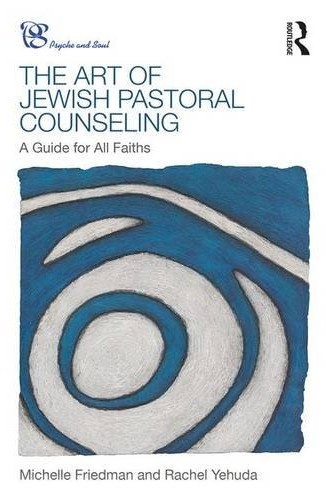The art of (Jewish) pastoral counseling
This book taught me about phylacteries. More importantly, it taught me about myself.
Practical books about pastoral care aren’t my favorite genre, but I picked this one up after it was recommended to me by the rabbi and poet Yehiel Poupko. I was delighted to find myself drawn deeply into the book’s case studies and discussions, which radiate the deep wisdom of the authors’ many years of experience as counselors and teachers. Michelle Friedman and Rachel Yehuda have taught pastoral counseling and psychiatry to rabbinical students and medical students for decades. “Honing the craft of pastoral counseling,” they write, “is a journey requiring ongoing curiosity and wonder at the depths of human suffering and the extraordinary capabilities troubled people have for resilience and growth.”
This book will be useful to members of the clergy from many faith traditions, as the subtitle claims. Not only is it a blessedly clear primer in pastoral counseling (which, let’s face it, most of us more than a few years out of seminary could probably use), but it also portrays the rich complexity of Jewish theology and practice in a way that encourages interfaith appreciation and dialogue. What initially drew me into the book was my interest in the moral quandaries specific to Judaism rather than any sense that I needed a refresher course in pastoral care. But as I kept reading, I realized that I did very much need that refresher course.
Friedman and Yehuda—both teachers at heart—have a knack for juxtaposing specific case studies with discussions that touch on broader issues of theory and practice. In one case study, a veteran who lost his left arm in battle asks his rabbi how he can pray with phylacteries (which are supposed to be strapped to the left arm). This brief example evolves into a broader discussion of how a rabbi might respond when she doesn’t immediately know the answer to a congregant’s question, how she might begin to discern the unspoken questions that linger behind a congregant’s voiced query, and how she might negotiate her own emotions about the congregant’s tragedy without shutting down the conversation. Most Christian pastors will never find themselves in the situation of advising about the proper use of phylacteries, but they will likely be faced with questions from parishioners that don’t have easy answers, that may be disguising deeper issues, and that evoke strong feelings of empathy.
The book emphasizes boundaries and clear delineation of roles. When is it appropriate to refer? How does a clergyperson resist inappropriately bringing his own issues into the room? How is a rabbi different from a psychotherapist? How might a pastor manage the disclosure of personal information to her congregation? When might a member of the clergy accept gifts or payments from a parishioner? Where should a meeting with a congregant take place when there’s a need to balance confidentiality with public accountability? When might it be permissible to hug a parishioner? How does a rabbi identify her own countertransference in a relationship? Because Friedman and Yehuda approach these questions through case studies, their discussion of these sensitive topics feels natural and in no way heavy-handed (the way the much-maligned “boundaries workshop” felt when I was in seminary).
Perhaps the most useful question the book raised in my mind was how a clergyperson can avoid the temptation to over-intellectualize a parishioner’s query. I used to be the Lutheran Campus Pastor at a university whose unofficial motto was “That’s all well and good in practice, but how does it work in theory?” In my pastoral counseling conversations, both the students and I were often tempted to over-intellectualize whatever topic was at hand. Perhaps it was a defense mechanism or subconscious attempt to avoid deep emotions (as Friedman and Yehuda might suggest); perhaps it was just a habitual way of having conversations within the campus environment. In any case, I wish that in those days I’d had the chance to read the case study in which Steven asks Rabbi Jack whether he should get a tattoo in honor of his friend who died unexpectedly:
Rabbi Jack understands that Steven’s question is not a request for a complicated, philosophical discussion about either the afterlife or Jewish tradition, which prohibits tattoos. Thus, he focuses on Steven’s loss of an old friend and the fact that he student is grieving far away from his home community.
As Friedman and Yehuda point out, “pastoral counseling training involves learning methods that sometimes require the counselor to suppress natural instincts” (like delving into theology too soon in a conversation). That process of suppression can be difficult, so I’m glad to have Friedman and Yehuda as guides.







